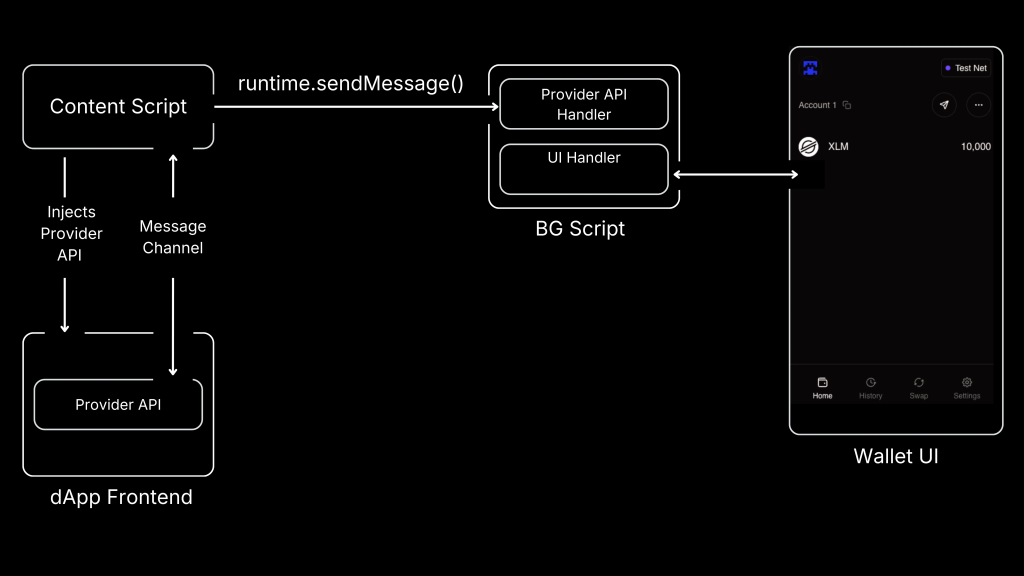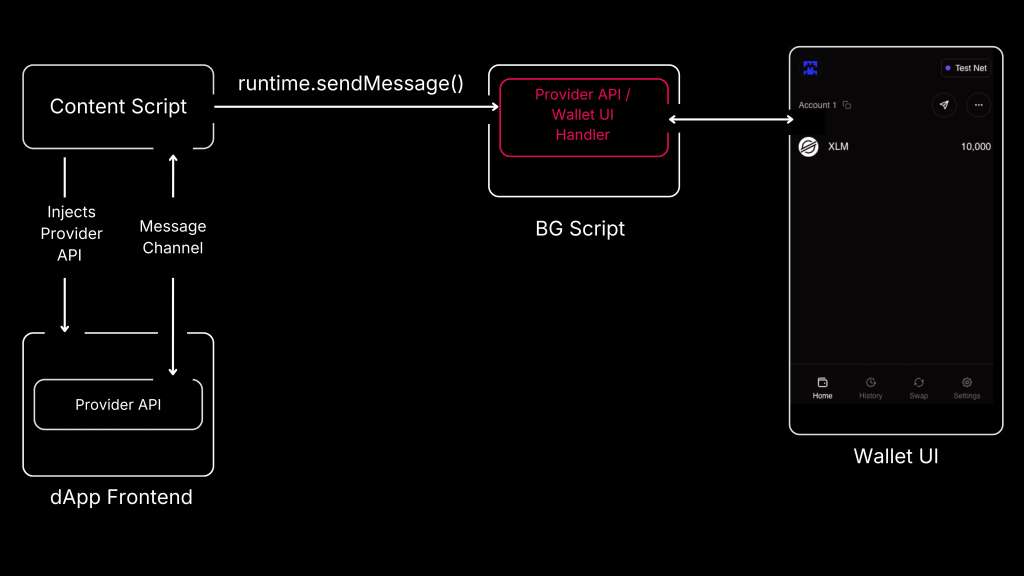

Researchers have disclosed a series of alarming vulnerabilities in popular browser-based cryptocurrency wallets that could allow attackers to silently drain user funds, without any phishing, social engineering, or wallet connection approval required.
As per a report by Coinspect, Industry-leading wallets such as Stellar Freighter, Frontier, and Coin98 were found to have flaws that exposed users to complete compromise simply by visiting a malicious website.


These vulnerabilities allow attackers to extract users’ secret recovery phrases or directly execute unauthorized transfers, putting millions of dollars at risk in the rapidly growing decentralized finance (DeFi) ecosystem.


Stellar Freighter (CVE-2023-40580)
In the Stellar Freighter wallet (CVE-2023-40580), researchers discovered that a design flaw in the wallet’s internal message handling allowed crafted messages from a web page to trigger a secret backup display function typically reserved for the user interface.
By exploiting this, an attacker could trick the wallet into revealing the user’s 12-word recovery phrase directly to their own site—no user approval, no interaction, not even a “connect wallet” action necessary.
Frontier Wallet
The Frontier browser extension leaked the encrypted secret recovery phrase via the Provider API, which was exposed to any website.
Even if the wallet was locked, attackers could exfiltrate the encrypted seed and the wallet address for offline brute-force attacks or targeted phishing.
Coin98 Wallet
The Coin98 vulnerability allowed websites to trigger wallet actions by sending messages that mimicked privileged commands (e.g., isDev:true), convincing the wallet’s background script to sign and broadcast unauthorized transactions.
Attackers could thus initiate direct fund transfers to their own addresses, all without user input.
What makes these vulnerabilities especially dangerous is the lack of warning or required action.
Victims didn’t need to connect wallets, approve transactions, or even recognize they were at risk: merely visiting a malicious website was enough for attackers to silently gain full control.
Further compounding the risk, attackers could wait until accounts were well-funded before draining them, delaying theft and frustrating forensic investigation.
While patches have been issued, these findings highlight urgent risks as new wallets enter the ecosystem, sometimes lacking mature, open-source code bases or thorough audits. Experts strongly advise users to:
The vulnerabilities serve as a stark reminder: in Web3, even the most trusted wallet can become a threat vector, often in ways no user would expect.
Find this News Interesting! Follow us on Google News, LinkedIn, & X to Get Instant Updates!
A new project has exposed a critical attack vector that exploits protocol vulnerabilities to disrupt…
A threat actor known as #LongNight has reportedly put up for sale remote code execution…
Ivanti disclosed two critical vulnerabilities, identified as CVE-2025-4427 and CVE-2025-4428, affecting Ivanti Endpoint Manager Mobile…
Hackers are increasingly targeting macOS users with malicious clones of Ledger Live, the popular application…
The European Union has escalated its response to Russia’s ongoing campaign of hybrid threats, announcing…
Venice.ai has rapidly emerged as a disruptive force in the AI landscape, positioning itself as…